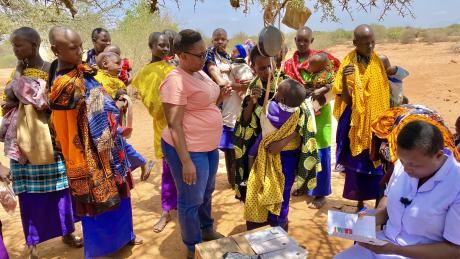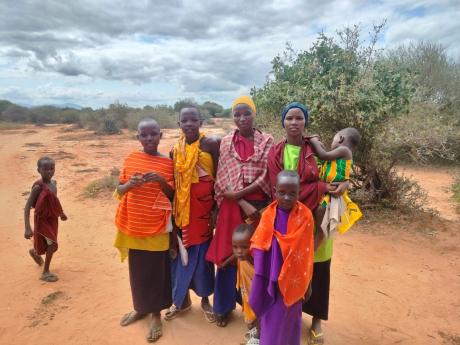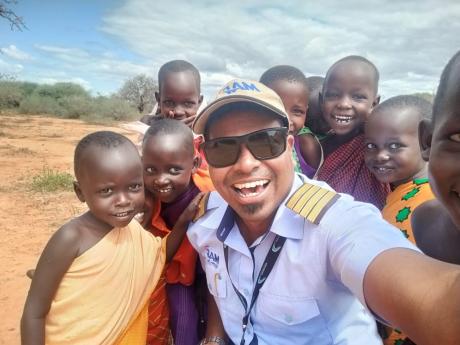
MAF pilot Roshan Stephen flew medical staff to the remote village of Lesirwai in northern Tanzania, delivering maternal healthcare and vaccines. For mothers like Nepili, this monthly flight means everything.
Story by Annet Nabbanja
“When the nurses come, we bring our children for vaccines, checkups, whatever help we can get,” said Nepili, a local mum who had brought her child for vaccination.
“Children and pregnancies don’t stop just because there’s no clinic,” she added. “Without the plane, we would have nowhere to take our children. It would be very difficult.”
Once a month, MAF flies nurses and doctors to Lesirwai, a locality with limited access to healthcare. For the people living there, the regular flight provided in partnership with Same hospital is the only reliable link to medical services.
Nepili explained that without the plane, the nearest town is more than four hours away — if you’re lucky enough to have access to a motorcycle.
Without the plane, we would have nowhere to take our children.
“We struggle a lot,” she said. “There’s no vehicle that can reach here easily. When the plane lands, even if it’s just once a month, it’s everything.”
Roshan Stephen, the MAF pilot who flew the medical team to Lesirwai explained that travel normally means long hours journeying by foot or motorcycle.
“There are no real roads out here,” he said. “Just a trail, barely passable. For us, it’s a 12-minute flight from Same. For them, it’s half a day of hard travel.”

Roshan talked about the warmth of the community: small gestures that meant a lot. Although for most of the year Lesirwai feels far from everything, the people’s kindness supersedes their struggles.
“They always meet us with kindness. I’ve flown to many places, but there’s something different about Lesirwai,” Roshan said.
“They don’t have much, but every time we come, they give something. A soda, a bottle of milk, sometimes just a handshake and a smile.
“The nurses get gifts too. It’s not the thing itself, it’s the meaning behind it. You can feel how much they appreciate it,” he said.

The children are often the first to run toward the plane when it lands.
“They’re shy at first,” Roshan said. “But once you smile at them, they just light up. Some of them just stand there looking like it’s the most exciting thing they’ve seen. You wave, they wave back. You laugh, they laugh too. It’s really simple, but it stays with you.”
Roshan shared one of the most emotional moments that has ever happened to him.
“After the clinic wrapped up, the mothers gathered with their kids. We took a photo, and then they started walking across the runway to go home. But they all turned around and waved until we took off.
“It was just a moment, but it stuck with me,” he said.
When the plane comes, it’s like the world remembers us.
For Roshan, each visit is meaningful and a sign of hope for the people of Lesirwai.
“Every time I fly out there, I feel it. It’s not just about landing and leaving. It’s about being present, showing up for people who are often forgotten.”
For the people of Lesirwai, one flight a month is not just transportation. It’s a sign that someone sees them.
“We don’t get visitors often,” said Nepili. “But when the plane comes, it’s like the world remembers us.”